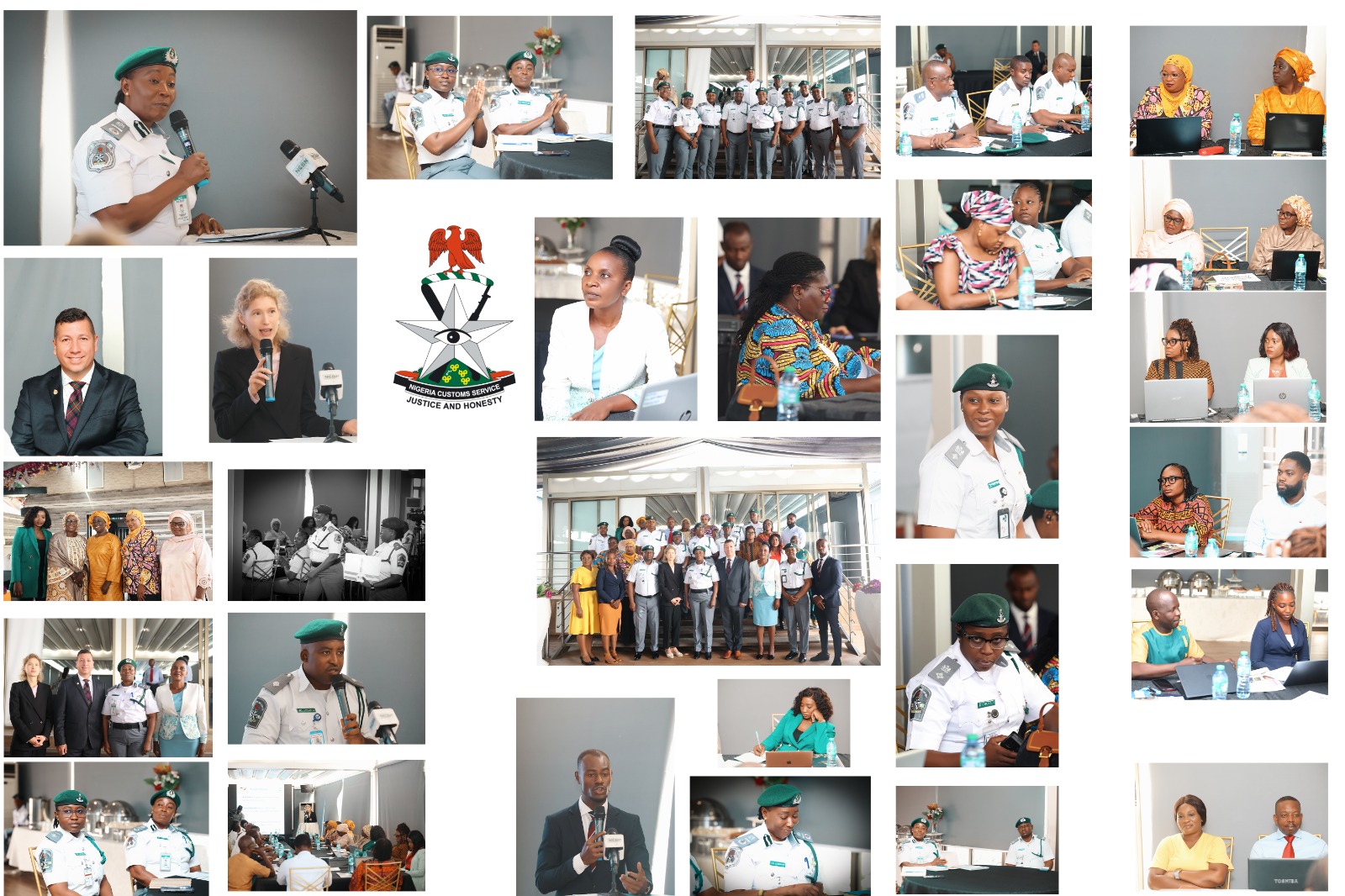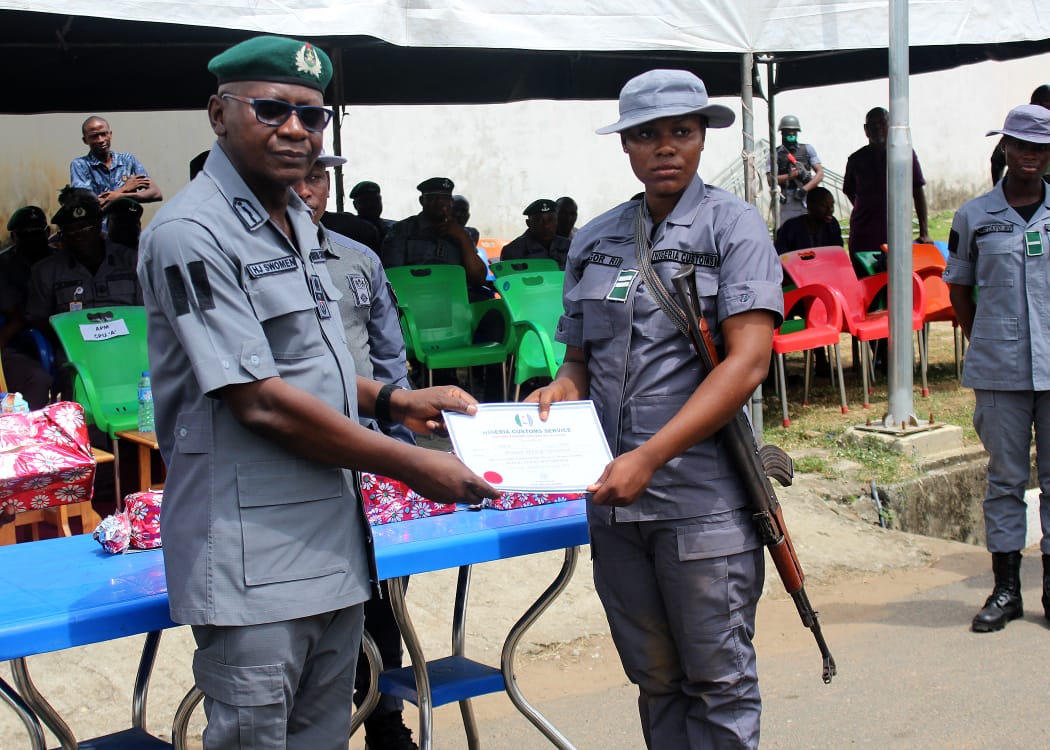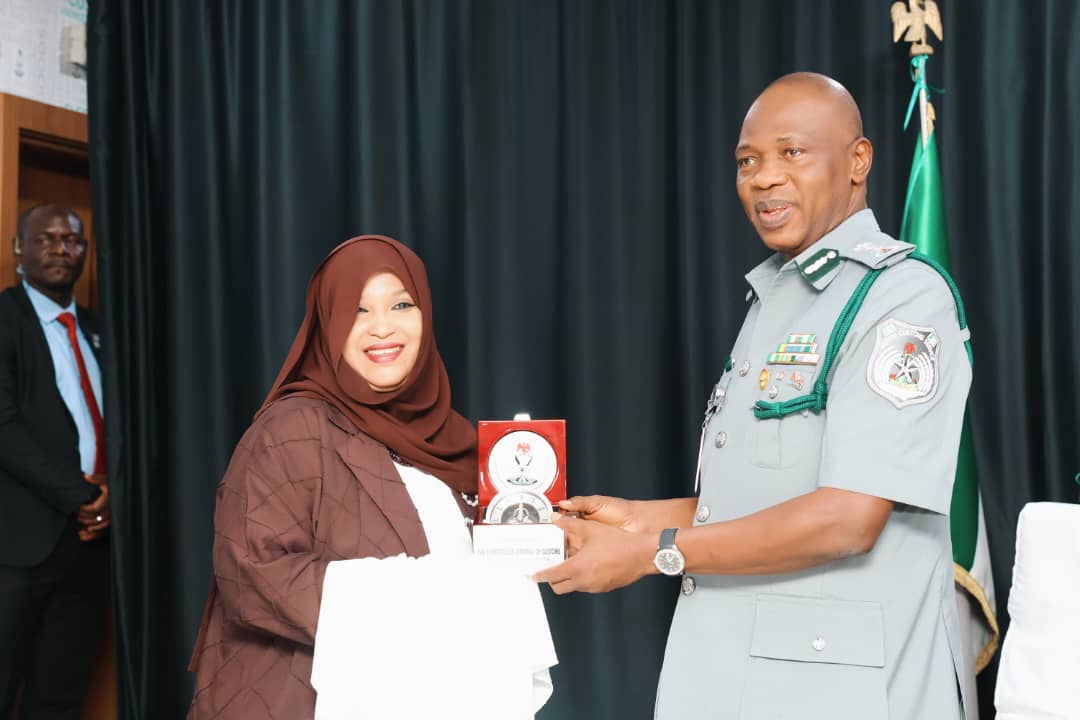Newsroom
Joint Task Force (JTF), Shell Deny Coercing Bayelsa Community on Spill Report

The Joint Task Force (JTF) in the Niger Delta and oil major, Shell on Monday denied allegations of coercing the leadership of Aghoro 1 community in Bayelsa to sign a disputed report on oil spillage.
A disagreement in the areas impacted by an oil leak on the Trans Ramos Pipeline within Shell’s oilfield at Aghoro communities in Bayelsa has stalled the release of a Joint Investigation Visit (JIV) report of the oil spill.
Community leaders, who participated in the JIV to determine the cause of the spill reportedly refused to sign the report.
The refusal was attributed to wide disparity between the impacted areas claimed by Shell and the community.
Mr Victor Akamu, Chairman of the Community Development Committee of Aghoro 1, had alleged that Shell connived with the Joint Task Force, JTF to force and intimidation, to compel the community to sign the report.

Shell
Akamu told reporters on Monday in Yenagoa that Joint Task Force JTF summoned the community’s leadership to Yenagoa on Aug. 23 to force them to sign the JIV report but that the leaders refused to sign.
He said the team from Aghoro were labelled pipeline vandals and were profiled into the database of the Joint Task Force JTF.
We were taken to a room where detailed profiles of all of us were taken, including our finger prints, biometric details and our photographs.
We were temporarily held down for almost three hours profiling before we were eventually told to go.
I wanted to ask if it is part of JTF’s job to force a community to sign a JIV report.
Shell should stop using JTF to intimidate our community. For the past 20 years, there is no history of pipeline vandalism.
This leak was due to a ruptured pipeline, due to corrosion yet they call us vandals, it is unacceptable, Akamu said.
However, reacting to the allegation of intimidation, Mr Bamidele Odugbesan, Media Relations Manager of Shell, denied use of force to compel the company’s host communities to sign the JIV report.
Yes, there are issues with the JIV report. The representative of Aghoro 1 community did not agree with a portion of the JIV report but we have not used force.
SPDC does not coerce parties to sign JIV reports, Odugbesan said.
Similarly, the Commander of the JTF, Rear Adm. Apochi Suleiman, dismissed the allegations of intimidation made by Aghoro community.
He said that the military waded into the crisis to encourage both parties to adopt dialogue to resolve their differences to avert breach of peace.
We conduct our duties in compliance with our rules of engagement. We invited the parties to mediate and encourage them to dialogue and use the established channels of resolving conflicts.
I told them to resolve their differences on the negotiating table so that the operation is not disrupted. Our mandate is to safeguard oil facilities and we do not want the disagreement to degenerate further.
We got reports that some persons were disrupting ongoing repairs of the ruptured pipelines and that was why some people were profiled.
Read Also:
- Akpabio any move to declare my seat vacant will prove abortive.
- Nigerian man found guilty on charges related to hacking
- INEC registers 23 new political parties. YES, RAP, UP, 20 other parties
- Nationwide strike over pay rise agitation
- ‘Heroes of the Force’ IGP commiserates with families of slain police officers
- Zamfara State Police capture 20 suspected bandits
- CP Lagos State Sacks Eight Officers, demotes six for Criminal Offences
- Queen of Soul, Aretha Franklin, dead at 76
- Okechukwu Nwanguma of NOPPRIN – CP Edgal has broken new grounds in crime control
- Lagos madwoman caught with human parts, corpses
- Professor Cheung Kie-Chung kills wife, body stuffed in suitcase
- Cultists kill former Ibadan Poly Chief Security Officer, student
I was emphatic that we cannot tolerate anyone taking the law into his hands, Suleiman said.
Investigations showed that the leak, which occurred on May 17 this year, discharged about 1,114 barrels of crude oil into the environment and polluted the Ramos River and farmlands.
The draft JIV report said the 1,114 barrels of crude impacted a total land area of 113.3 hectares in Aghoro 1 but the community claimed that the impacted area was 1825 hectares.
Follow Us on our Social Media handle;
ADVERTISEMENT

ADVERTISEMENT
Customs Corner
Nigeria Customs Service Reaffirms Commitment to Gender Equality in Decision-Making

Author: Bashir Muhammad.
The Nigeria Customs Service (NCS) has reiterated its dedication to promoting gender equality in decision-making processes as part of its efforts to combat gender discrimination and gender-based violence.


At a capacity-building workshop on gender inclusivity, co-organized by the World Customs Organization (WCO) and the NCS in Abuja on Monday, April 22, 2024, the Comptroller-General of Customs, Bashir Adewale Adeniyi, reaffirmed his commitment to fostering a gender-inclusive environment within the service.
Acting Deputy Comptroller-General of Customs, Caroline Niagwan, represented the CGC at the event, where she emphasised the need for clear policies and procedures to address gender discrimination, harassment, and biases within the NCS.
“Our aim is to create a workplace where everyone has equal opportunities to grow and contribute to the service’s success, regardless of gender,” the CGC said. “We are committed to addressing gender discrimination, harassment, and biases within our ranks, and we will work tirelessly to ensure that our policies and practices reflect this commitment.”
The workshop brought together customs officials, gender experts, and stakeholders to discuss strategies for promoting gender inclusivity and addressing gender-based violence in the workplace.
With this reaffirmed commitment, the NCS demonstrates its dedication to creating a more inclusive and equitable work environment where all employees can thrive and reach their full potential.
Customs Corner
ACG Swomen Charges Trained Officers on Weapon Handling to Remain Worthy Ambassadors Customs

Author: Ibe Wada.
The Zonal Coordinator in charge of Zone A, ACG Hammi Swomen, has charged over 60 officers to remain worthy ambassadors of the Nigeria Customs Service as they concluded an intensive training on weapon handling.
Swomen, who also represented the Comptroller-General of Customs, Bashir Adewale Adeniyi, MFR, made this remark on Friday, 19 April 2024, during the passing out Ceremony of Officers of the Federal Operation Unit, Zone A, who were trained on weapon handling at the Customs Training College, Ikeja, Lagos.


Expressing appreciation for the dedication of all involved, Swomen emphasised the significance of the training in enriching the Nigeria Customs Service.
He said, “This is a wonderful milestone, not just for the Zone but the entire service. It is a message we would carry far and wide”.
With retirement on the horizon, Swomen expressed confidence in the Service’s future, stating, “My primary constituency, NCS, is moving to greater heights.” He urged the trained officers to positively influence their colleagues as a way of renewing their commitment to the Service.
Addressing pressmen on how the training would contribute to the general goal and mission of the Service, he said, “It is all-encompassing, ranging from how they deal with members of the public to carrying out operational affairs and others. They had classroom work, study tour to Seme checkpoints and went for shooting range too”.
Highlighting the comprehensive nature of the training, which addressed challenges faced by Customs Officers in the field, Outgoing Federal Operations Unit Comptroller Hussein Ejubunu remarked, “It behoves on the leadership to ensure that training and retraining of personnel is done as and when due. This crop of Officers were posted to the Zone and my Command and I felt the need for them to be retrained on weapon handling as this has become a challenge”.


“It is an indication that the Service will still go places and that we have competent trainers in the NCS that can train our men. I have no doubt in me with the present crop of Officers that are passing out today”. He acknowledged.
Commandant of Customs Training College, Ikeja, DC Haniel Hadison, expressed gratitude to the CGC for the opportunity to conduct the one-month training on weapon handling.
Hadison emphasised the effectiveness of the modules covered, noting, “In the course of this training, we did not experience any casualty.”
Hadison highlighted its significance in addressing operational challenges faced by Customs Officers, from engaging with the public to executing operational affairs effectively.
Customs Corner
CGC Adeniyi Meets NFIU DG, Reiterates Commitment to Enhance Border Security

Author: Muhammad Bashir.
The Comptroller-General of Customs (CGC), Bashir Adeniyi, had on Tuesday, 16 April 2024, received in audience the Nigerian Financial Intelligence Unit (NFIU) delegation, led by Director General Hafsat Bakari, at the Service’s Headquarters in Abuja.


CGC Adeniyi’s meeting with DG Bakari centred around sealing a strong partnership that will enable the two agencies to take measures of enhancing border security through intensifying onslaught against smugglers and money launderers and other terrorism financing activities.
The CGC, while addressing the NFIU officials, congratulated DG Bakari for her appointment to head the organisation. He expressed Nigeria Customs Service’s commitment to support NFIU by way of establishing a joint team that will be tasked to address some pressing issues.
“I want to wish you a successful tenure. I see, through your passion, your commitment to Project Nigeria, and I also see the collaborative spirit that you brought on board. These are all things that I share also because I believe that we can draw strength from each other, assist ourselves, and get things done.” the CGC said.
“We need to form an internal team that will be drawn up from our side to review those outstanding issues so that we begin to see, in a determined effort, what we can do,” he added.
Speaking earlier, the NFIU Director-General, Hafsat Bakari, applauded the NCS’s resilient commitment to safeguarding Nigerian borders, particularly in combating smuggling activities.
Emphasising the importance of information sharing, Mrs Bakari highlighted that her visit to the Headquarters of the Nigeria Customs Service is to establish a cordial relationship with the service in intelligence sharing.
She said, “We recognise the vital role of the NCS in protecting Nigeria’s borders, preventing the smuggling of illicit goods, but also in ensuring that those who import goods into our country pay the appropriate fees and levies that are due to the federal government.”
According to her, the ultimate goal of the NFIU was to ensure the safety and prosperity of Nigeria, adding that “we want to make sure that we have efficient systems processes and technologies in place to identify the smuggling of currency and other high-value items.
-

 Revenue Streams2 years ago
Revenue Streams2 years agoCommunication Ministry Gives Zero Allocation to Nipost Out of N137.2billion Capital Votes
-

 Customs Corner2 years ago
Customs Corner2 years agoCustoms Emerges Champions of 2022, Male, Female National Volleyball Super Cup
-

 Newsroom3 years ago
Newsroom3 years agoNNPC Blames #EndSARS Protests, As Fuel Queues Return
-

 ICT5 years ago
ICT5 years agoFinally! Huawei Launched Harmony OS | Let the Rivalry Begins with AndrodOS
-

 Naija News6 years ago
Naija News6 years agoINEC registers 23 new political parties. YES, RAP, UP, 20 other parties
-

 COVID-194 years ago
COVID-194 years agoVaccine Trials Starts Round The World: All You Need to Know
-

 Customs Corner3 years ago
Customs Corner3 years agoArea Controller, Murtala Muhammed International Airport Command Passes On
-

 Foreign2 years ago
Foreign2 years agoPhilippines’ Duterte Blocks Bill to Register Social Media Users














